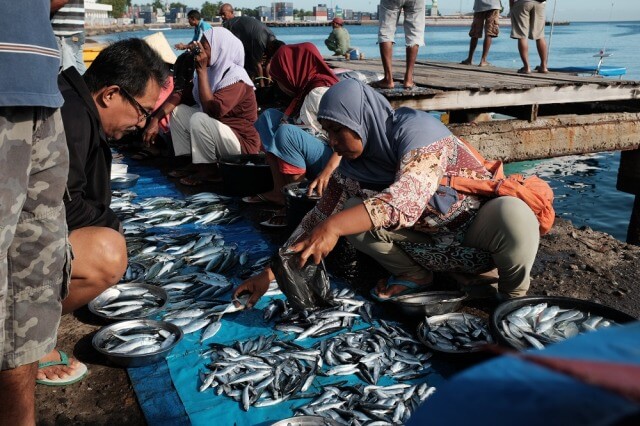Kopernik is excited to partner with Yayasan Plan International Indonesia and Bengkel APPeK to implement the MATA KAIL project, an initiative to encourage the use of simple, environmentally friendly technologies in the fisheries sector in East Nusa Tenggara as an effort towards sustainable economic growth and employment opportunities in the area. The project also involves Plan International as the project coordinator.
Funded by the European Union, MATA KAIL is part of SWITCH-Asia II Program that aims to promote sustainable economic growth and employment opportunities of marginalized youth, particularly young women, in the fish-processing sector in three locations — Lembata, Nagekeo, Sikka — in Indonesia. The program focuses on facilitating small and Medium-sized Enterprises (SMEs) and Micro, Small and Medium-sized Enterprises (MSMEs) to develop sustainable fish-processing services and products and increasing knowledge for the community in promoting sustainable consumption behaviors of fisheries products.
While East Nusa Tenggara is a region abundant with fish, much of the harvest is often wasted due to spoilage and contamination as there are limited processing facilities available. This also leads to the high use of chemical preservatives such as formalin. More widespread use of simple technologies in fish storage, preservation and processing are hoped to bolster the growth of the fish-processing industry in East Nusa Tenggara, thus spurring employment in the area.

Despite East Nusa Tenggara's abundant fish stocks, much of the harvest is often wasted due to spoilage and contamination as there are limited processing facilities available. (Photo credit: Riesa Eka Putri/Kopernik)
In the three-year project, Kopernik will conduct market demand research in three locations to identify inefficiencies in current practices related to the fish processing industry. We will then test appropriate technology that can address these problems. Potential technologies include, among others, insulated buckets, off-grid refrigerators, solar dryers, fish smokers, and meat-bone separators.
The project will also include a micro-financing component to ensure that the recommended technologies are accessible to youth-based or existing SME/MSMEs. Kopernik will share what they learn during the testing phase of the project by publishing a report and providing technical training to small businesses, explaining how the technology works and how it can improve their business.
This publication was produced with the financial support of the European Union. Its contents are the sole responsibility of Kopernik and do not necessarily reflect the views of the European Union.


